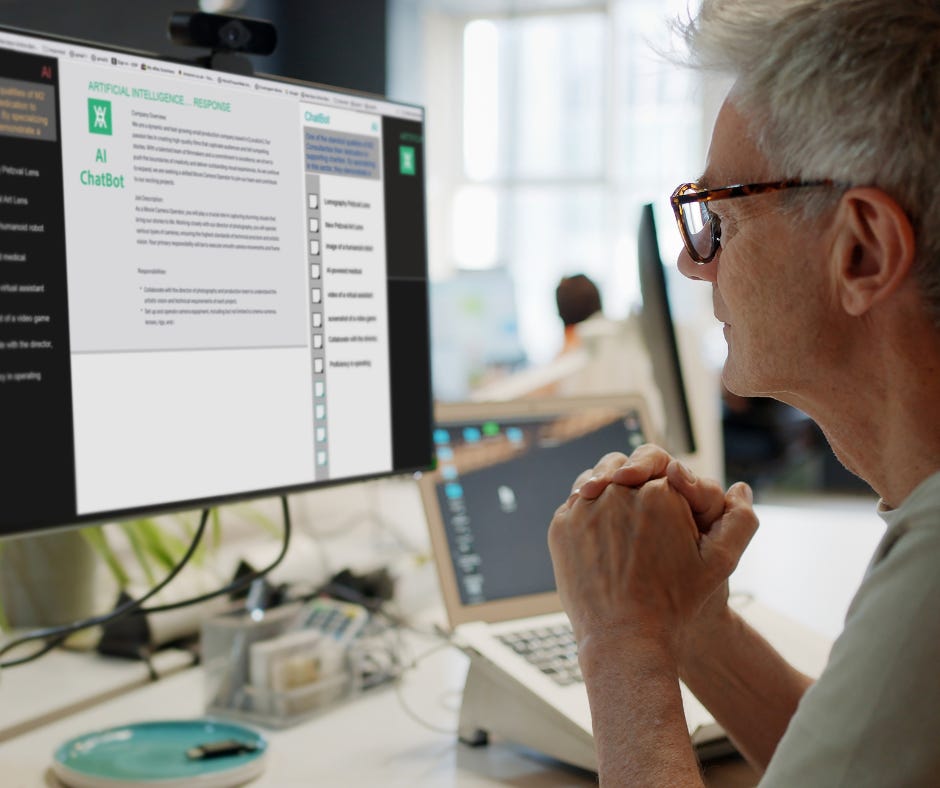You're Using AI Like Google - Here's How to Turn It Into a Real Teacher
Spent 2 hours "learning" from AI yesterday but can't remember anything today?
You're treating AI like Google - quick question, quick answer, move on to the next task.
That works fine when you need to know "what does this error code mean?" But if you want AI to actually make you better at your job, you need a different approach.
The difference between Google and a great teacher? Google gives you information. A teacher helps you understand, remember, and apply what you learn.
Here's how to transform your AI from a search engine into the best mentor you've never had.
The Google Problem: Why Quick AI Answers Don't Stick
When you Google something, you're optimizing for speed. Find the answer, use it, forget it.
Most people bring this same mentality to AI:
Ask a question
Get an answer
Apply it immediately
Move on
The problem? Nothing transfers to long-term memory. You end up asking AI the same questions over and over, never building real expertise.
The teacher approach is different. Instead of extracting quick answers, you're building understanding that sticks.
3 Ways to Transform AI From Google Into Your Personal Teacher
1. Stop Asking for Answers - Start Asking for Prerequisites
Google mentality: "Explain logistic regression to me."
Teacher mentality: "I want to understand logistic regression. What foundational concepts should I grasp first to really get this? Walk me through what I need to know to understand this properly."
Why this works: Real teachers don't just explain the topic you asked about. They make sure you have the foundation to understand it deeply.
What happens: Instead of memorizing a logistic regression definition, you discover you need to understand linear regression, probability basics, and odds ratios first. Now you're building proper knowledge scaffolding instead of isolated facts.
Try this today: Add "What do I need to understand first?" to your next AI question.
2. Demand Context That Matches Your Reality
Google mentality: "Show me how to calculate customer lifetime value."
Teacher mentality: "Show me how to calculate customer lifetime value for a B2B SaaS company with annual contracts, different pricing tiers, and expansion revenue. Include the edge cases I'll actually encounter in my work."
Why this works: Generic examples are instantly forgettable. When examples match your specific work context, your brain recognizes them as important and worth remembering.
What happens: Instead of struggling to translate textbook examples to your situation, you get directly applicable knowledge. The retail analyst finally grasps cohort analysis when she asks for examples using "seasonal clothing sales with return policies" instead of generic e-commerce data.
Try this today: Replace "give me an example" with "give me an example using [your specific industry/situation]."
3. Learn the Thinking Process, Not Just the Solution
Google mentality: "What's the best way to handle missing data in this dataset?"
Teacher mentality: "Walk me through how you'd approach missing data in this situation. What factors are you considering? What questions are you asking yourself about the data and business context? Then give me your recommendation with the reasoning."
Why this works: Great teachers don't just give you the answer - they show you how to think through the problem. You learn the decision-making framework that you can apply to new situations.
What happens: Instead of just knowing "use mean imputation," you learn the systematic approach: assess missingness patterns, consider business context, evaluate impact on analysis, then choose the method. Now you have a framework for any missing data situation.
Try this today: Add "show me your thinking process" to any request where you want to understand the methodology.
Why This Teacher Approach Actually Works
These three shifts work because they match how your brain learns best:
Asking for prerequisites builds proper foundations so new concepts have something to stick to
Demanding relevant context makes examples important enough for your brain to remember
Learning thinking processes gives you frameworks you can apply to new problems
The result: Instead of bookmarking AI conversations you'll never revisit, you start building a mental toolkit of approaches you can apply to new situations. The difference shows up when colleagues and peers ask you questions and you can explain not just what to do, but why it works.
Your Next AI Conversation
Right now, before you read anything else, open your AI tool.
Think of one work problem you're facing this week. Pick the teacher approach that feels most natural:
Ask what you need to know first
Request examples from your specific context
Ask to see the thinking process
Try it once. Notice how much more depth you get compared to your usual quick questions.
That's the difference between using AI as Google versus using it as your personal mentor.
The goal isn't to have perfect AI conversations. It's to stop having the same conversation twice.
In a few months, you'll notice something significant: You're not just getting AI answers anymore. You're building expertise that people notice and your career can bank on.
What work challenge will you test this teacher approach on first?
Chat soon,
Donabel



This is great information, I’m definitely going to put it into practice